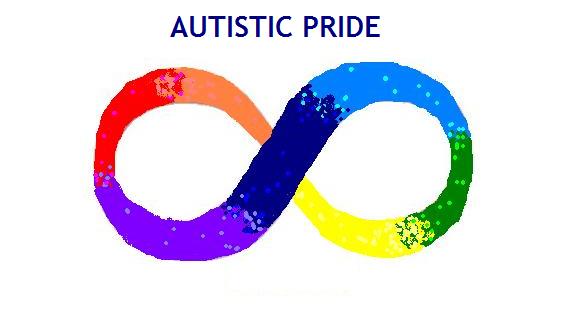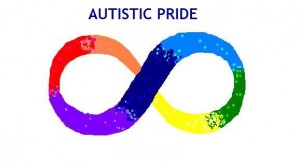
Neurodiversity
As you may know we run a Facebook page called AutismTalk.
Last week we published a few graphics with the objective of promoting autism awareness. One of them was the neurodiversity symbol. An example of which I have used to illustrate this blog post.
When we posted the image one of our readers commented “This is the first time I’ve seen you post something with the actual neurodiversity symbol on. Instead of the awful puzzle piece which me and many autistics keep saying we hate”.
I’ll admit I was intrigued by the comment so reposted to see what other thought. The responses were fascinating.
Kendra commented ” I personally don’t mind what symbol is used. My Autistic child loves the puzzle piece. But really the symbol doesn’t matter its the awareness its all meant to raise. Use what you like and keep raising awareness.”
While another reader said ” don’t understand the dislike for the puzzle piece. I’m very open to hearing the debate they don’t understand it. For my family is very symbolic because I knew nothing about autism. With nonverbal children and no I didn’t experience, everything was a mystery. I still don’t feel like all of the pieces have come together yet.”
But Philip respondent “The actual meaning of the puzzle-piece symbol is that once medical experts have solved the puzzle of autism by finding a “cure” for it, this dreaded “disease” will be wiped out like a plague. This is basically neurological Nazism – the idea that people like me have no right to exist, since we are inherently inferior to “normal” people.”
Lisa’s view was different again ” I hate the puzzle piece when I first saw it when my son was diagnosed I didnt think of a puzzle that needs to be figured out in order to appreciate, I thought of “missing” puzzle piece and I hated that thought aimed at my son like hes missing a piece. Perhaps thats just me ??? I also dont like it when its just the piece without the word autism (or similar word) because its not exactly autism awareness unless you already know what the autism puzzle logo is! I saw it a few times and just thought the person liked jigsaws lol ”
So you can see views really do vary. So what do you think? Should we use the puzzle image of the new neurodiversity symbol and part of our struggle to promote autism acceptance?
Tell us what you think?
Please use the comments box below to share your thoughts.
Thanks very much in advance.




